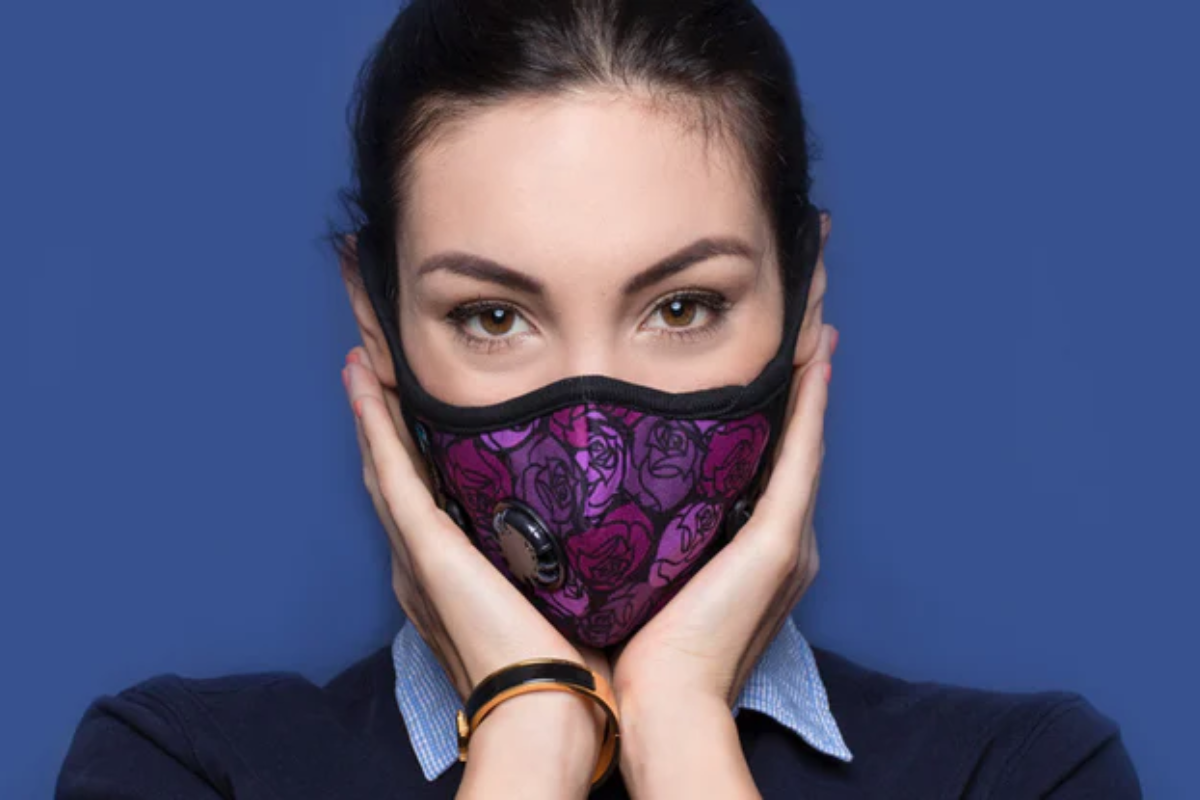
Breathe Easy: The Benefits of Using a Face Mask for Allergies During Allergy Season
Allergy season can be a challenging time for millions of Americans. It’s that time of the year when the air is filled with allergens that can make life miserable for those who suffer from allergies. But what if there was a simple solution to help mitigate these symptoms? Enter the face mask for allergies. In this blog, we’ll delve into why using a face mask can help with allergy symptoms, the benefits of wearing one, why this time of year is called allergy season, and the common allergens we encounter. Let’s explore how an allergen mask can be your best ally during allergy season.
Why Is a Face Mask Used to Help With Allergy Symptoms?
Face masks have become a common sight, primarily due to their role in protecting against viruses. However, their use extends beyond just preventing illness. Masks designed for allergies can be incredibly effective in reducing exposure to airborne allergens. Here’s how they work:
- Filtration of Allergens: Face masks, especially those designed for allergy sufferers, can filter out tiny particles like pollen, dust, and pet dander. These masks often feature multiple layers of fabric and special filters that trap allergens before they can enter your respiratory system.
- Barrier Against Irritants: Wearing a mask creates a physical barrier that prevents you from inhaling airborne allergens. This can be particularly helpful during high pollen counts or when you're in environments with high levels of dust or mold.
- Reduction of Inflammation: By limiting exposure to allergens, masks can help reduce the inflammation and irritation that often accompany allergic reactions. This means fewer symptoms like sneezing, itchy eyes, and a runny nose.
The Benefits of Using a Face Mask for Allergies

Using a mask for allergies can offer a range of benefits that significantly improve your quality of life during allergy season:
- Symptom Relief: The most immediate benefit is relief from common allergy symptoms. By blocking allergens, masks can reduce the frequency and severity of sneezing, coughing, and nasal congestion.
- Enhanced Respiratory Health: Consistently wearing an allergen mask can protect your respiratory system from irritation and long-term damage caused by repeated exposure to allergens. This is especially beneficial for individuals with asthma or other respiratory conditions.
- Increased Comfort: Masks can make it possible to enjoy outdoor activities and other environments that might otherwise be off-limits due to high allergen levels. Whether you're gardening, walking your dog, or attending an outdoor event, a mask can help you breathe easier.
- Convenience: Modern allergen masks are designed to be lightweight, comfortable, and easy to use. Many options are reusable and washable, making them a practical addition to your allergy management toolkit.
Do COVID Masks Work for Allergies?
Given the widespread use of masks during the COVID-19 pandemic, you might wonder if these masks can also be effective in managing allergy symptoms. The answer is yes, but with some considerations:
- Type of Mask: Not all masks are created equal. Cloth masks, surgical masks, and N95 respirators differ in their ability to filter particles. While cloth masks and surgical masks provide some level of protection against larger particles, N95 respirators offer the highest level of filtration, effectively blocking most airborne allergens.
- Fit and Comfort: A mask’s effectiveness is partly determined by how well it fits. A snug fit that covers both the nose and mouth without gaps is crucial for optimal filtration. Masks designed specifically for allergies often feature adjustable straps and nose clips to ensure a secure fit.
- Breathability: Comfort is key when wearing a mask for extended periods. Look for masks made with breathable materials that do not compromise filtration efficiency. Masks designed for allergy sufferers typically balance breathability and filtration to provide relief without causing discomfort.
- Reusability and Maintenance: COVID masks can be reusable if they are properly maintained. Washing cloth masks regularly and following manufacturer guidelines for disposable masks ensure they remain effective. Allergy-specific masks often come with replaceable filters to maintain their efficacy over time.
Why Is It Called Allergy Season?
Allergy season refers to specific times of the year when allergens are most prevalent in the environment, leading to increased allergy symptoms for many people. This period typically aligns with the growth and reproductive cycles of various plants and trees.
- Spring: Often the most challenging time for allergy sufferers, spring is when trees and flowers bloom, releasing large amounts of pollen into the air.
- Summer: Grass pollen is the main culprit during the summer months. This season can also bring higher levels of mold spores.
- Fall: Weed pollen, especially ragweed, is the primary allergen during the fall. Mold spores can also increase due to falling leaves and decaying vegetation.
- Winter: Although less common, indoor allergens like dust mites and pet dander can be more problematic during the winter when we spend more time indoors.

Common Allergens Found in the Air We Breathe
Understanding the common allergens in our environment can help us better manage our exposure and symptoms. Here are the primary culprits:
- Pollen: Released by trees, grasses, and weeds, pollen is one of the most common airborne allergens. It can travel long distances and trigger symptoms even if you’re not near the source.
- Dust Mites: These microscopic creatures thrive in warm, humid environments and are commonly found in household dust. They can trigger year-round allergy symptoms.
- Mold Spores: Mold grows in damp environments and releases spores into the air. These spores can cause allergic reactions when inhaled.
- Pet Dander: Tiny flakes of skin shed by pets can become airborne and cause allergic reactions in sensitive individuals.
- Pollutants: While not traditional allergens, air pollution and cigarette smoke can exacerbate allergy symptoms by irritating the respiratory system.
Conclusion
Wearing a face mask for allergies can be a game-changer for those who suffer during allergy season. By filtering out harmful allergens, reducing exposure, and providing relief from symptoms, an allergen mask can help you breathe easier and enjoy life more fully. As allergy season rolls around, consider adding a mask to your arsenal of allergy-fighting tools. Whether you’re dealing with pollen, dust mites, mold spores, or pet dander, a mask for allergies can offer the protection and comfort you need.
Remember, while a mask can significantly reduce exposure to allergens, it’s also important to adopt other allergy management strategies, such as keeping your home clean, using air purifiers, and consulting with a healthcare professional for personalized advice. Here’s to a healthier, more comfortable allergy season!


